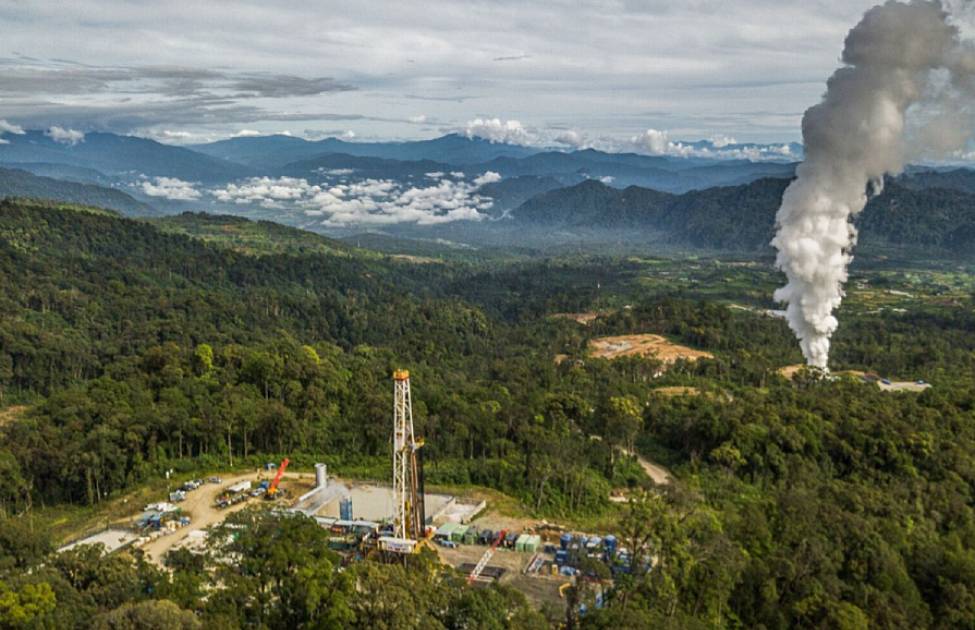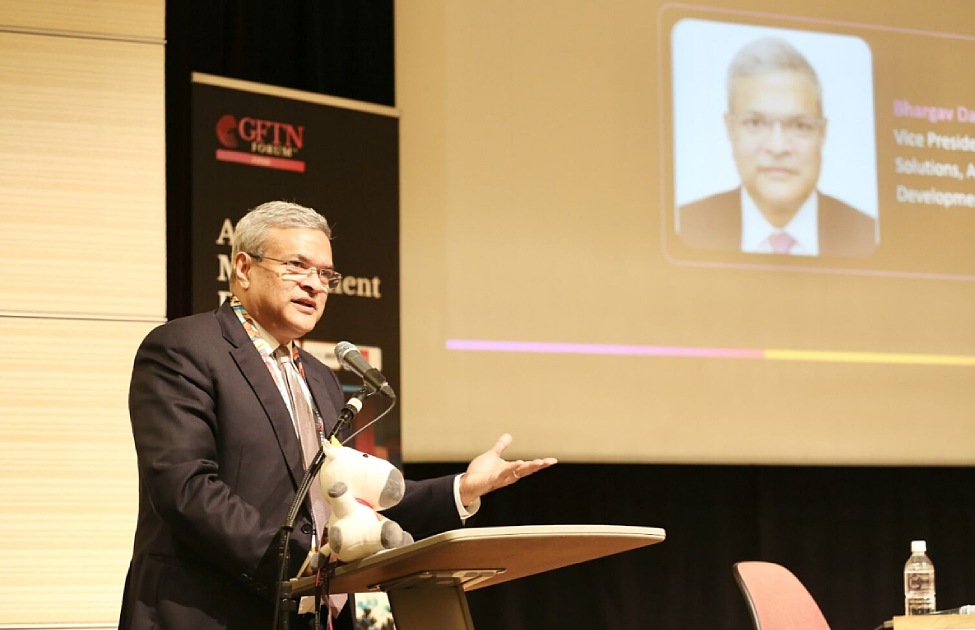Messages from Keidanren Executives and Contributed articles to Keidanren Journals September, 2025 Mobilizing Private Capital: ADB's role in advancing sustainable growth across Asia and the Pacific

Asia and the Pacific face a $1.7 trillion#1 annual sustainable infrastructure financing gap. Rising fiscal constraints and debt burdens, compounded by global trade uncertainty, threaten the region's growth trajectory. This is particularly true for Fragile and Conflict-Affected Situations (FCAS) and Small Island Developing States (SIDS).
Without decisive and coordinated action, decades of hard-won development gains risk being reversed.
This is a moment where international cooperation is essential, and where the private sector must play a much greater role. Public finance is increasingly scarce and cannot bridge the gap alone. What is needed is a catalytic approach that unlocks private capital, de-risks investment, and creates markets where innovation can thrive.
The Asian Development Bank (ADB) was established by Japan and partner countries in 1966 as a financial institution that would be Asian in character and foster economic growth and cooperation in what was then one of the poorest regions in the world. Since then, ADB is a leading multilateral development bank supporting inclusive, resilient, and sustainable growth across Asia and the Pacific. We are ramping up our work with the private sector, and we are redesigning our strategy and operations to ensure every unit of financing we deploy, whether foreign or local currency, creates meaningful development impact: by generating jobs, advancing digital access, expanding essential services, and building inclusive and competitive markets.
In 2024, ADB committed $24.3 billion in total financing, with private sector operations growing to 58 supported projects from 40 in 2023. We also unlocked a new capital adequacy framework that provides $100 billion in additional lending headroom over the next decade, expanding our capacity to unlock capital at scale.
ADB's private sector operations more than doubled since 2022, from $1.1 billion of private sector projects committed in 2022 to $2.6 billion in 2024. We aim to quadruple private investment financing to $13 billion annually by 2030. To achieve this goal, it is also essential to provide upstream support for private sector development, including facilitating formulation of policies and regulations, as well as the strengthening of institutions and human resources, including those within governments. In this context, ADB has set a target of allocating 40% of its sovereign operations to support private sector development. By leveraging its unique institutional structure—where both sovereign and non-sovereign operations are integrated under a single organization—ADB will continue to promote private sector development in a comprehensive and coordinated manner.
1 Asian Development Bank. (2017). Meeting Asia's Infrastructure Needs:
https://www.adb.org/sites/default/files/publication/227496/special-report-infrastructure.pdf
Platforms for Innovation and Inclusion
We are building stronger institutional platforms that link policy reform, market development, and finance for the private sector. As the Vice-President for Market Solutions, I lead ADB's Private Sector Operations Department (PSOD) and the Office of Markets Development and Public-Private Partnership (OMDP).
PSOD is the powerhouse behind our private sector operations. It catalyzes private investments through direct financing, credit enhancements, and risk mitigation instruments, provides direct funding assistance through loans and equity investments, and offers guarantee instruments encouraging both foreign and local commercial lenders to support projects in ADB's developing member countries.
In 2024, PSOD committed $2.6 billion to high-impact investments across physical and digital infrastructure, agribusiness, healthcare, and financial inclusion. In addition, our Trade and Supply Chain Finance Program supported nearly $5 billion in transactions, facilitating trade in critical goods and services across 44 countries. Our microfinance program extended access to finance for 900,000 low-income entrepreneurs, many of them women micro borrowers.
ADB also financed the first private sector led sustainable aviation fuel (SAF) facility in Asia and the Pacific, located in Pakistan. For this path-finding project, ADB acted as the lead arranger and book runner and mobilized parallel and B-lenders. PSOD spearheaded Uzbekistan's first and largest solar, wind, and battery storage projects, and with co-financing from the Leading Asia's Private Infrastructure Fund (LEAP), unlocked Uzbekistan's first dialysis center PPP. We enabled clean urban transport through electric buses in India and Indonesia. We also expanded access to green finance through sustainability-linked bonds across Georgia, Mongolia, and Armenia. These are just a few examples of how ADB is catalyzing transformative change.
Meanwhile, OMDP sets up the use of sovereign lending, private sector financing, technical assistance, and transaction advisory services to enable private sector participation in infrastructure development. Its success in 2024 in closing the $2.1 billion PPP for Manila's main airport—the largest in Southeast Asia—demonstrates the power of well-structured, transparent infrastructure deals. From policy dialogue to bankability support, OMDP is turning government priorities into ready-to-finance realities.
Together, PSOD and OMDP, alongside ADB's regional departments, represent ADB's whole-of-bank approach to private sector development.
A New Chapter in Development Finance
As we catalyze these path-finding transactions, we also continue to sharpen our approach and execution. Our Strategy 2030 Midterm Review, revisited last year, marks a strategic pivot in our operational focus. It underscores the urgency of crowding in private finance and accelerating reforms. It also emphasizes the need for deeper regional cooperation, stronger local capital markets, and a more agile, risk-tolerant multilateral development bank.
At the core of our renewed strategy is a fundamental shift: from being a direct lender to being a catalyst. From providing ordinary capital resources ourselves, to mobilizing private capital at scale.
However, it is not just about numbers. It is about outcomes. We are focused on solving Asia's most urgent development challenges—from job creation to food and health security, from digital inclusion to economic resilience. The private sector is and will be a critical driving force in delivering these development outcomes at scale.
Partnering with Japan for Shared Prosperity
Delivering on ADB's ambitions requires trusted partnerships. Japan is a cornerstone of the bank's history and has always been a key force behind its success. Our partnership with Japan will be more critical than ever in the coming years, as we work to unlock innovative private sector investments at scale throughout Asia and the Pacific.
During my visit to Tokyo early this year, I met with senior government officials, investors, and industry leaders, including our partners from Keidanren. A key theme from these discussions was strong alignment on the importance of accelerating private sector-led growth, supporting innovation, and expanding our collective impact.
We see significant opportunity for deeper collaboration with Japanese companies, especially in infrastructure, logistics, healthcare, green manufacturing, and digital solutions. Japan's legacy of technical excellence, development leadership and long-term strategic thinking, positions it well to be a key leader in shaping the next chapter of Asia and the Pacific's development journey.
At ADB, we are scaling up our support for startups and early-stage ventures through ADB Ventures and ADB Frontier, which provide capital to impact-driven enterprises across Asia and the Pacific. With Japan's strong entrepreneurial ecosystem and expertise in industrial innovation, we believe this area holds rich potential for collaboration.
Powering the Future: ADB and Japan's collaborative success in Energy Projects
Historically, ADB has also worked with Japanese corporates and financial institutions to support a range of energy projects and regional interconnection.
In Indonesia, ADB played a catalytic role in the Muara Laboh geothermal project. The project is developed by Sumitomo Corporation and INPEX Corporation with Fuji Electric Co., Ltd. serving as a contractor, and JBIC and NEXI as co-financiers. ADB led the structuring and the financing of the project, mobilizing SMBC as a B lender as well as a concessional financing as a shock absorber to address risks unique to geothermal projects.
In Lao PDR, as the sole mandated lead arranger and bookrunner, ADB arranged, structured, and syndicated a $692.55 million financing package for the Monsoon Wind Power Project—the country's first wind power project, the largest in Southeast Asia, and the region's first cross-border wind transaction. The project is supported by international sponsors including Mitsubishi Corporation, and lenders such as the Japan International Cooperation Agency (JICA) and Sumitomo Mitsui Banking Corporation. The financing package also includes $60 million in concessional blended finance to overcome bankability challenges and attract commercial capital, with $20 million provided by LEAP (funded by JICA). This project will significantly increase clean energy supply, promote sustainable economic growth, and enhance regional cooperation and integration.
These projects not only highlight what is possible with strong public-private collaboration, they also reflect the deep trust, robust partnership, and shared ambition of ADB and Japan.
Forging the Path Ahead
We are at a defining moment for Asia and the Pacific. The development challenges ahead are immense, but so are the opportunities if we act boldly and together.
ADB is committed to working with partners who share our vision of inclusive, resilient, and sustainable development. We are strengthening our toolbox, scaling our ambition, and sharpening our focus. But we cannot do it alone.
To our partners in Japan—corporates, financiers, entrepreneurs, and policymakers— thank you for your partnership to date. Your expertise, capital, and innovation have enabled us to deliver projects that uplifted lives, opened markets, and secured a brighter future for the region. To further deepen our relationship with our Japanese partners, we have located staffs in our Japan Resident Office focusing on private sector operations. Let's continue to co-create solutions that deliver long-term value.
The potential is vast. The momentum is building. And the time to act is now.
(Photo 1)Muara Laboh Geothermal Project Site

ADB was the lead structuring bank of a private sector geothermal power project in Sumatra Island, Indonesia, successfully mobilizing private capital.
(Photo 2)Vice-President Bhargav Dasgupta

ADB Vice-President Bhargav Dasgupta presents the Bank's initiatives to support startups and promote sustainable investment at the GFTN Forum Japan 2025 (Tokyo, March 4, 2025).

